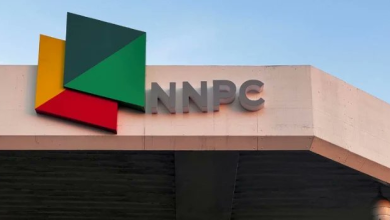IMF Raises Nigeria’s 2025 Economic Growth Forecast to 3.4%
IMF raises Nigeria’s 2025 growth forecast to 3.4%, citing better oil output and stronger services.
Analysts urge inclusive reforms as modest gains still fall short of easing poverty and joblessness.
The International Monetary Fund (IMF) has revised its 2025 economic growth forecast for Nigeria upward to 3.4 percent, reflecting improved prospects for oil production and a stronger services sector. This marks a 0.4 percentage point increase from its earlier projection of 3.0 percent released in April.
The updated figures were published in the July 2025 edition of the IMF World Economic Outlook, which also included upward revisions for global and regional economies. The IMF now forecasts Nigeria’s economy to expand by 3.2 percent in 2026, compared to its previous estimate of 2.7 percent.
The revised outlook follows a broader global trend, with the IMF also raising its global growth forecast to 3.0 percent for 2025 and 3.1 percent for 2026, citing easing inflation and a more resilient global economy.
For Sub-Saharan Africa, the IMF predicts GDP growth will reach 4.0 percent in 2025 and 4.3 percent in 2026, both slightly up from its April estimates.
“Growth is expected to be relatively stable in 2025 in Sub-Saharan Africa at 4.0 percent, before picking up to 4.3 percent in 2026,” the report stated.
Reacting to Nigeria’s revised forecast, Tunde Abidoye, Head of Equity Research at FBNQuest Merchant Bank, noted that the IMF 3.4 percent estimate aligns with their internal projections based on recent data from the National Bureau of Statistics (NBS).
“I believe the upward revision likely reflects improved oil production and the strong performance of services,” Abidoye said. “That said, the range-bound single-digit growth rate forecast still portends cautious optimism, as the growth is still too modest to tackle the poverty problem.”
Nigeria’s economy has faced persistent structural challenges in recent years, including inflation, foreign exchange instability, and energy supply issues. However, improved oil output, growing investment in technology and services, and ongoing fiscal reforms have created cautious optimism among analysts.
While the 3.4 percent projection signals a gradual recovery, experts continue to emphasize the need for inclusive growth, diversification, and stronger job creation to address high unemployment and poverty levels.
The IMF next update is expected in October 2025, which will reflect mid-year macroeconomic trends and additional policy developments in Nigeria and other emerging markets.



